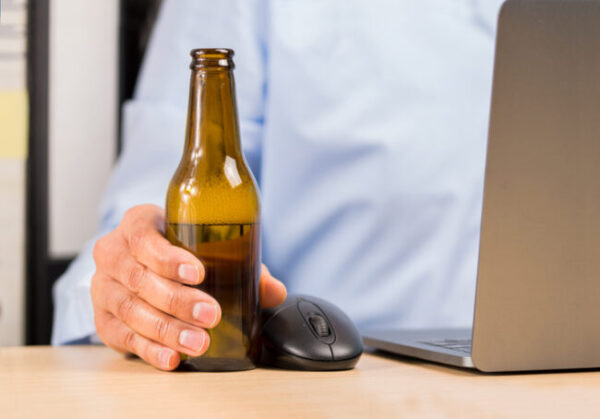It’s easy to lie to yourself about addiction issues when they don’t seem very serious at first glance. This is the experience many functioning alcoholics have, which is quite different when compared to stereotypical experience believed to result from alcohol misuse.
A person with functioning alcoholism will be able to maintain some semblance of a normal life. They’ll go to work, they’ll see friends, and they may even appear healthy and motivated. However, their alcohol addiction will continue to grow until they’re no longer able to keep control over it.
Risk Factors for Functioning Alcoholism
Some people are more prone to alcohol issues than others. For example, having an underlying mental health disorder like depression or anxiety can increase your risk of dependence. This has much to do with the ill feelings those disorders cause, feelings that alcohol use temporarily masks.
Stress levels are another factor to consider. If you’re subject to consistent daily stress, such as at work, you’re more likely to turn to alcohol to cope. Having a family member with addiction issues, drinking over a certain amount each day, and being exposed to peer pressure can also increase your risk of developing a functional dependency.
How to Tell If You’re Having Issues
It can be hard to look inward when struggling with alcohol addiction. If you’re concerned about functional alcoholism, look for the following signs:
- Irritability and frustration when you’re prevented from drinking.
- Binge drinking or having more than five drinks at one time.
- Accumulating stockpiles of alcohol so you always have access to it.
- Drinking more than you say you will or intend to.
- Experiencing withdrawal when you refrain from drinking.
- Hiding or lying about how much alcohol you drink.
- Engaging in risky behaviors while drunk.
- Experiencing blackouts, which are periods of inebriation when you have no memory of what occurred.
What to Do If You Believe You’re a Functioning Alcoholic
Addiction issues must be addressed in a kind and caring environment. In Albuquerque, Duke City Recovery Toolbox offers essential resources to people struggling with drug and alcohol dependence. Our outpatient programs use many innovative approaches to guide your recovery. We also offer family assistance to ensure your loved ones have the tools to successfully navigate the process.
Contact us for more information or call (505) 224-9777 to begin the enrollment process. We treat every patient with the respect and dignity they deserve.





